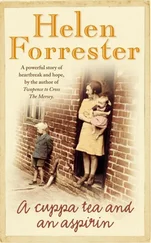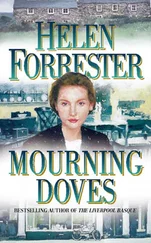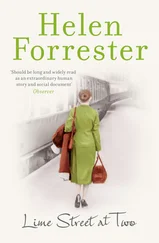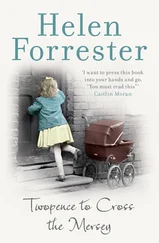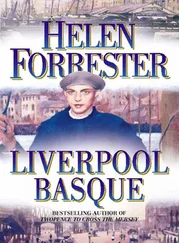As grossly overworked Phyllis remarked, with resignation, ‘At least this lot knows what being clean means, thanks be to Mary.’
Phyllis and Barbara agreed that it was advisable to keep the house more crowded than it had ever been, lest the authorities suddenly change their collective mind and try to thrust additional, unwanted guests upon them. And there was always the overriding fear that the Army or the Air Force might requisition the entire property, though this did not happen.
So, for nearly seven years, as a constant background to their personal grief at the loss of their menfolk, the harassed hostesses faced continuous complaints about the difficulty of climbing stairs; and, though each bedroom had a sink, that there was only one bathroom and three lavatories in the place.
Regardless of the fact that almost every home in Britain was cold from lack of fuel, running wars were fought between old gentlemen trying to hog the chairs nearest the meagre gas fire in the lounge. Ladies complained of lack of hot water for washing clothes and having baths – even of getting into the bathroom in the first place.
Accusations regarding the unfair distribution of rationed food, particularly the tiny amounts of sugar, butter, cheese, jam and marmalade, flew back and forth between the little round tables in the dining room. Sometimes, perfectly respectable couples would accuse each other of theft of jam from their private pots, which had been specially provided by Phyllis to ensure fairness.
Frequently, Phyllis had to intervene in the altercations and point out the minuscule amount of individual rations. It all seemed so stupid to her. There were men like her husband Hugh, victim of a U-boat attack, and George, who would give their lives for them – and they screamed with rage over marmalade!
Anybody would imagine that they had no one in their families serving in the Forces; yet Phyllis knew that they did.
When, in 1944, George was killed, Barbara thought the refugees would drive her insane. She was sorely tempted to scream, ‘Shut up! Get out!’ at them, and she wondered how her mother could endure them so patiently.
When the war ended, most of them lingered for a while. A number had wrecked or damaged homes, which had to be restored before they could move down south again. A few, perhaps because they had been protected for so long from the reality of existence in a drained country, seemed unable to make up their minds what to do, and, meanwhile, had stayed on.
Particularly in 1947, the worried hostesses had had a real problem finding enough food, rationed or unrationed, to provide three meagre meals a day for the old curmudgeons. They had thankfully said farewell to the last of them at Christmas.
That same year Barbara and her mother had been very relieved to see the return of some of their usual clientele, commercial travellers. The gentlemen had little to sell. Wholesalers were anxious, however, to keep their company name in front of their old clients, so that, as soon as adequate goods were available, their pre-war share of the market would not be lost.
Once or twice, thought Barbara, the old folk had been very nice to her. Back in June 1942, when she had married George, they had insisted that Phyllis use some of their points rations, which meant very limited amounts of tinned food, like Spam or golden syrup, to make a wedding breakfast for the young couple.
In addition, all the ladies had set to work to embroider or knit or crochet little wedding gifts. Even the gentlemen, whom Barbara swore were the laziest bunch of old so-and-sos she had ever met, bestirred themselves. The result was a number of beautifully hand-carved gifts. Though she could no longer bear to look at them because it made her want to cry, she still treasured in her dressing-table drawer three neatly carved wooden spoons made from driftwood found on the shore.
She went round the lot of them to kiss them in gratitude.
They had been equally kind when they heard about George’s death; they had all expressed their sorrow at her loss, as those who knew about it had done earlier, when her father was killed. There had not been a single quarrel for at least two weeks.
During the weeks following the loss of George, two of the residents lost grandsons and at last, it seemed to Barbara, the reality of the war truly came home to them; not even a string of bombs dropped across the Wirral peninsula, nor the news some had received of their homes being damaged or requisitioned had been able to achieve that.
When the war began, Barbara herself had wanted to volunteer for military service and join the ATS, the Auxiliary Territorial Service. It sounded exciting.
Her mother would not hear of it. ‘With your dad at sea, I need you. Who else can I turn to?’
So Barbara, who loved her mam, stayed home.
When France fell to the Germans, Barbara broached the subject again. But Phyllis still would not hear of it either. Nice girls stayed at home with their mams. ‘And, anyway, wot am I going to do without you, and a house full of old folks to run?’ When her father was torpedoed, her mother was certainly glad to have her there.
A domestic crisis had occurred when, in December 1942, all married women under the age of forty were called up for war work. Barbara was directed to a contractor who was busy repairing damaged docks in Birkenhead. She worked on shift as a labourer together with one other girl. Her hours were long and the work, with all its lifting and carrying, was very heavy.
‘At least it’s better than the ATS,’ Phyllis said, as she rubbed Barbara’s back with surgical spirit. ‘You can sleep in your own bed.’ She imagined that she was being comforting.
Barbara’s bed was exceedingly cold, especially without George. She shrugged and looked down at her hands, which were rapidly being ruined by hard labour, and felt that the Army would probably have been easier. She had not, however, wanted to quarrel about it. She admitted to herself that, in comparison with pre-war earnings for women, her wages were very good. Since there was nothing much in the shops to buy, she saved as much as she could by opening a bank account and also purchasing war bonds. Between her work shifts she helped her mother, so her social life was negligible. They all prayed for a rapid end to the war.
George’s fourteen-year-old sister had left school the previous summer. She had since been working as a shop assistant for a greengrocer. When Barbara was called up, she volunteered, for a slightly better wage, to come to work for Mrs Williams, to make beds and clean floors. In addition, two elderly women from the village came in as part-time help.
As a result of these changes, the elderly residents found plenty more to complain about. None of them, however, moved out; the bombing of London was by then unremitting, and the heavy bombing of Liverpool earlier in the year was sufficient to keep them in the comparative safety of the village by the sea. Though, occasionally, their provoked hostesses wished them dead, not a single one of them died during the many years that they boarded with Phyllis.
‘We looked after them too well – or it was the good sea air,’ Phyllis replied acidly when Ada once pointed this out to her.
When travelling to France, Barbara had passed through Birkenhead and Liverpool on her way to catch a train to London. She had been forcibly reminded of the toll of war in Britain by the destruction she could still see there, and she remembered, with a pang, the long civilian casualty lists pinned up in the city, the pitiful treks each night that the inhabitants had made to the outer suburbs such as Huyton, in the hope of survival. How had George’s few surviving comrades felt when they returned home to this?
She was shocked at the miles of ruins she had observed in London. How many homeless people must there be in London? How many dead? She realised, with genuine distress, that there must be returning ex-service men who had lost their entire families in the broken, once close-packed streets of the capital. They must wonder what they had fought for.
Читать дальше


